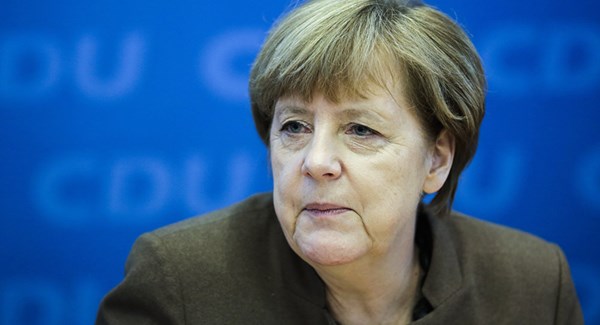Merkel under fire over telephone call to Lukashenko
The telephone conversation of the acting German Chancellor Angela Merkel with the self-proclaimed president of Belarus Alexander Lukashenko caused sharp criticism in Germany, Estonia and Poland. The deputy of the Green Party faction and a member of the Bundestag Committee on International Affairs, Omid Nouripour, speaking on the radio station Deutschlandfunk, called these talks "a terrible signal". He noted that the European Union does not recognize Lukashenko as the legitimate president of Belarus, but Merkel, having held this conversation, actually made this recognition.
The chairman of the Foreign Affairs committee of the Estonian parliament Marko Mihkelson also criticized Merkel's conversation with Lukashenko. According to him, the acting Chancellor of Germany "thereby recognized Lukashenko as the legitimate president" of Belarus.
"It was a serious disappointment, because we took a common position that we do not recognize Lukashenko as the head of the Belarusian state. By having this contact, Merkel creates a rather strange impression. In addition, she did it bypassing Poland. And Putin would have liked it very much," ERR news agency quoted Mihkelson as saying.
Polish Deputy Prime Minister Jaroslaw Kaczynski is skeptical about the actions of the international community regarding the situation on the Belarusian-Polish border. "It should be borne in mind that internationalization is certainly necessary, but not to the extent that it should be negotiated behind our backs and such proposals be made" he said on Radio Polskie.
On Monday, November 15, Merkel held a telephone conversation with Lukashenko. According to the spokesperson of the German government, Steffen Seibert, the parties discussed the situation on the Poland-Belarus border and in particular the need for humanitarian assistance to the migrants there. Saibert said that Merkel and Lukashenko agreed to continue this discussion.
This was the first telephone conversation between the leader of one of the European countries and Alexander Lukashenko after the presidential elections in Belarus in August 2020. The European Union refuses to recognize Lukashenko as the winner of these elections and, accordingly, the head of Belarus.
According to the Belarusian news agency BelTA, during a conversation with Merkel, Lukashenko made proposals for resolving the crisis on the Belarusian-Polish border. Merkel, according to the agency, is expected to discuss these proposals with the members of the European Union. Lukashenko is expecting another telephone conversation with the acting Chancellor of Germany.
The situation on the eastern EU border escalated sharply on November 8, when several thousand migrants intending to move to the European Union approached the Polish border from Belarus. Thousands of people are stuck on the Polish-Belarusian border. They spend nights in temporary camps in freezing cold. In recent days, groups of migrants have repeatedly tried to break through the fences and cross into the EU.
At the end of May, Lukashenko said that the Belarusian authorities would no longer detain refugees trying to illegally enter the EU through Belarus. In early fall, the number of flights from the Middle East to Minsk increased significantly. After that, the flow of migrants trying to enter the EU from Belarus increased sharply.
The European Union accuses the Lukashenko regime of deliberately provoking a tense situation on the border and facilitating the transfer of thousands of migrants to the EU border. In response to the "hybrid attack" of Minsk, the EU plans to introduce a fifth package of sanctions, which will include measures against airlines transporting migrants from the Middle East to Belarus.
